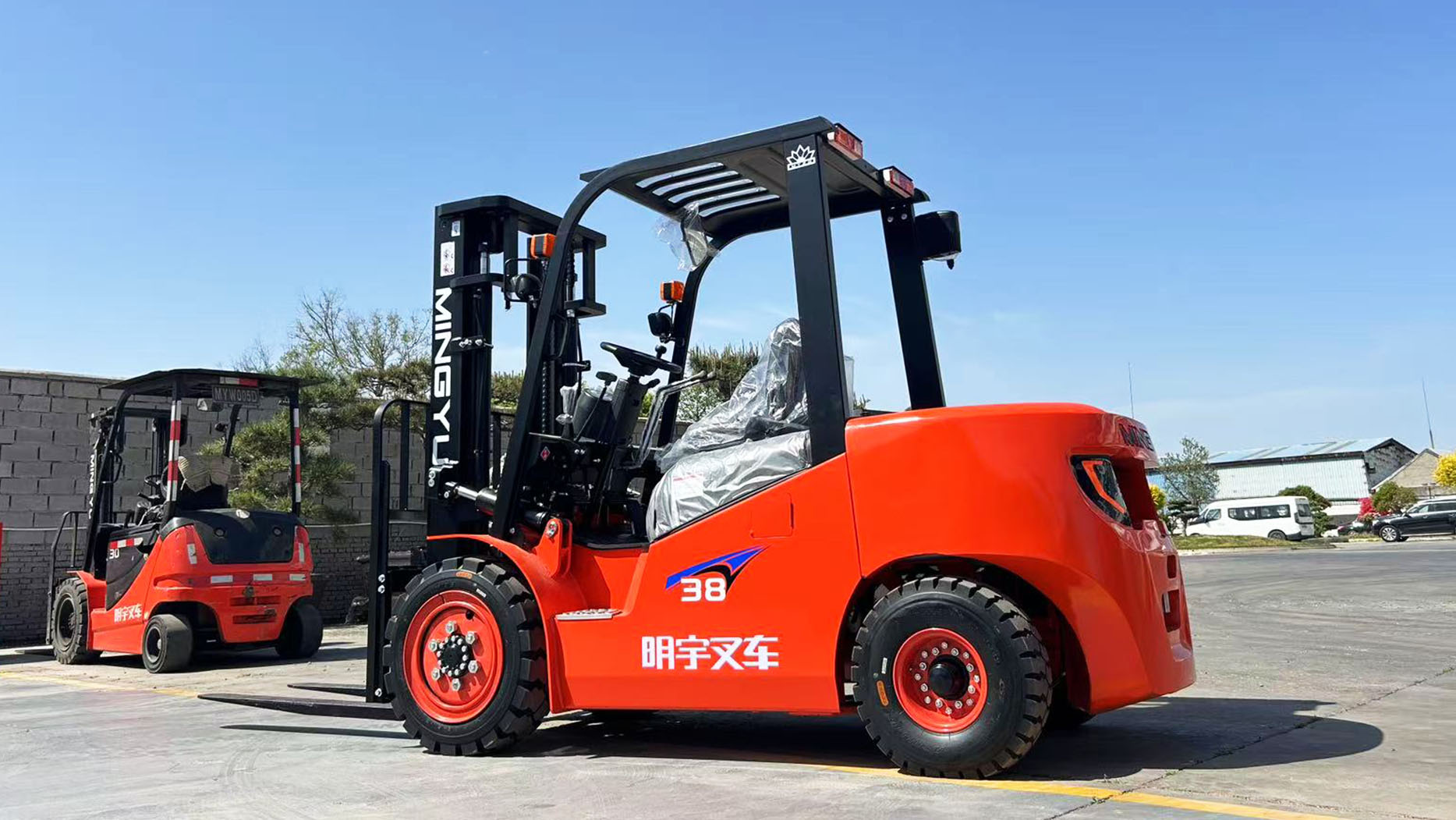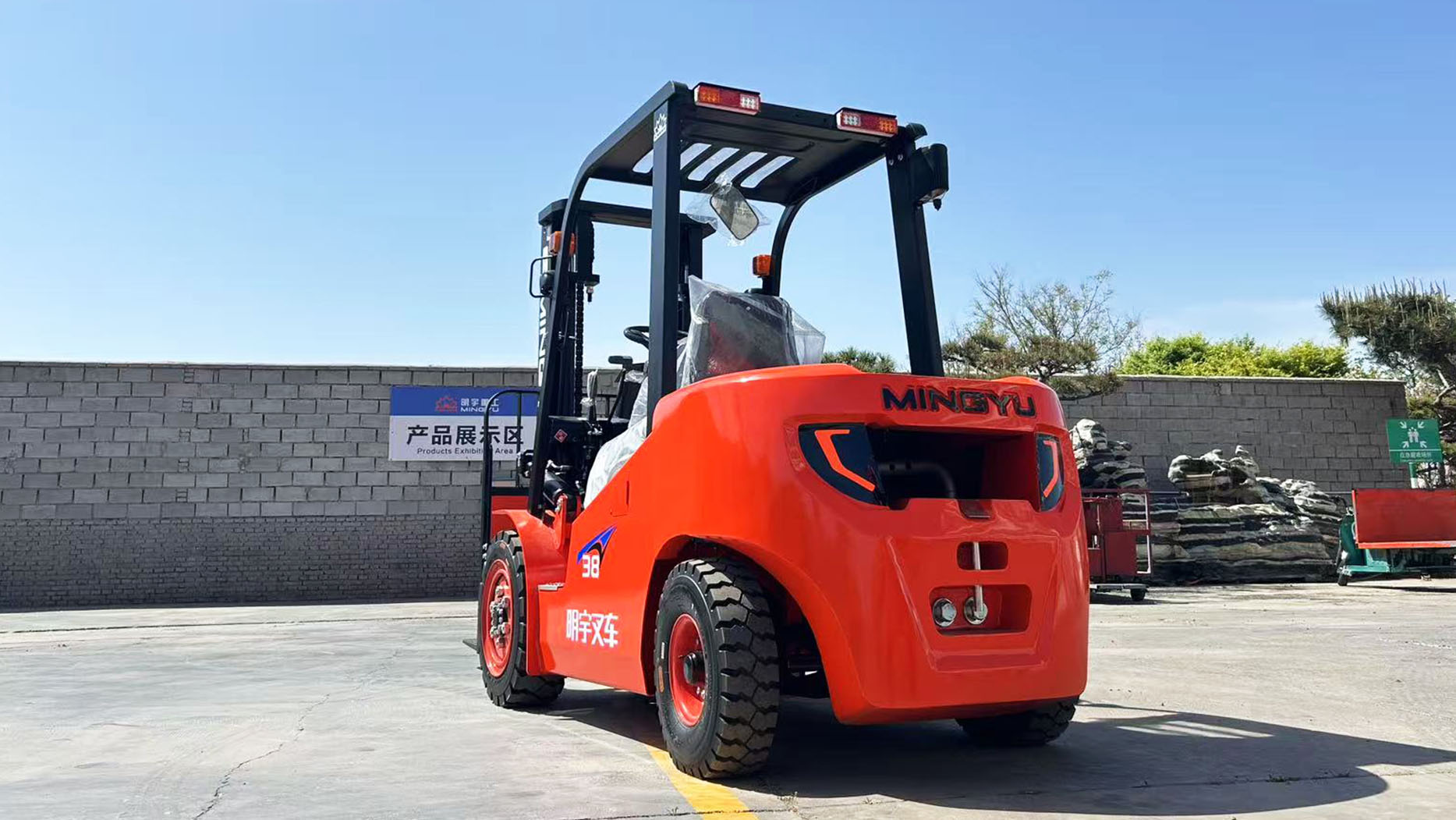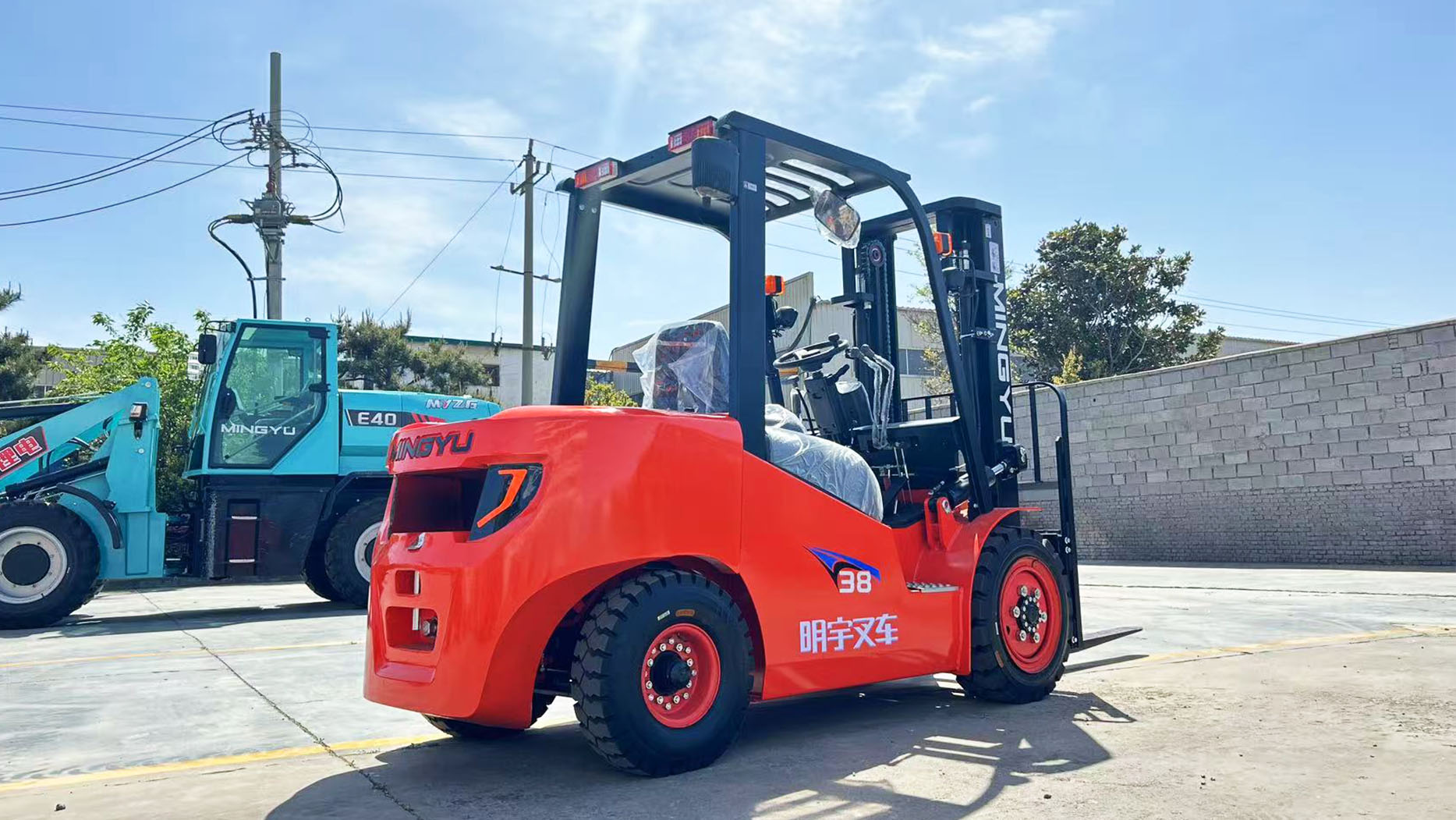In the bustling world of material handling, where efficiency and reliability are paramount, Toyota forklifts have carved a distinguished niche. Synonymous with the same engineering prowess and quality that define their automotive counterparts, Toyota forklifts represent a comprehensive range of industrial vehicles designed to lift, move, and stack materials across diverse industries. But what exactly are Toyota forklifts? This technical article will delve deep into their history, core characteristics, technological innovations, diverse model range, and the factors that have solidified their position as a leading force in the global material handling market.
A Legacy Forged in Reliability: The History of Toyota Forklifts
The journey of Toyota into the material handling sector began in 1956 with the introduction of the Model LA, their first 1-ton forklift, in Japan. This marked the initial foray of Toyota Motor Corporation into a new domain, leveraging their engineering expertise beyond automobiles. The subsequent year saw the introduction of their first tow tractor, further expanding their industrial equipment portfolio.
The pivotal moment for Toyota in the global forklift market arrived in 1967 when they sold their first forklift in the United States and established their initial dealership. This marked the beginning of their significant presence in North America. Over the following decades, Toyota steadily expanded its forklift offerings, introducing both internal combustion (IC) and electric models to cater to a wider range of applications.
The 1970s witnessed further consolidation and growth, including the acquisition of a factory in Japan that remains operational today. In 1975, Toyota established a separate business unit, Toyota Industrial Trucks, U.S.A., Inc., dedicated to their forklift operations in the United States. This strategic move underscored their commitment to the North American market.
The late 20th and early 21st centuries saw significant milestones for Toyota Forklifts. The establishment of the Toyota Industrial Equipment Manufacturing (TIEM) facility in Columbus, Indiana, in 1990 marked a crucial step towards localizing production for the North American market. This state-of-the-art facility has since produced hundreds of thousands of forklifts, demonstrating Toyota's long-term investment in the region.
Innovation has been a constant throughout Toyota Forklift's history. The introduction of their first electric forklift in 1975 showcased their commitment to environmental considerations. The launch of the revolutionary 7-Series internal combustion forklifts in 2000, featuring the world's first System of Active Stability (SAS), underscored their focus on safety and technological advancement. Furthermore, Toyota was among the first major manufacturers in the U.S. to offer AC technology in their electric forklifts, enhancing energy efficiency and performance.
In January 2020, Toyota Material Handling, Inc. (TMH) was officially formed through the integration of two related business units, further streamlining their operations and solidifying their position as a leading material handling solutions provider. Today, with over six decades of experience, Toyota Forklifts is a globally recognized brand, renowned for its reliability, durability, safety features, and comprehensive product line.
Core Characteristics Defining Toyota Forklifts:
Toyota forklifts are not merely material handling machines; they embody a set of core characteristics that have contributed to their widespread adoption and reputation:
Unwavering Reliability and Durability: Drawing upon Toyota's automotive engineering heritage, their forklifts are built with a focus on robust construction, high-quality components, and rigorous testing. This translates to dependable performance, reduced downtime, and a lower total cost of ownership over the lifespan of the equipment.
Emphasis on Safety: Toyota has consistently prioritized operator safety, integrating innovative features and technologies into their forklifts. The System of Active Stability (SAS) is a prime example, employing sensors and actuators to actively monitor and control the forklift's stability, mitigating the risk of tip-overs. Other safety features like the Operator Presence Sensing System (OPSS) further enhance operational safety.
Technological Innovation: Toyota forklifts are at the forefront of technological advancements in the material handling industry. This includes the integration of AC motor technology in electric models for improved efficiency and performance, telematics systems like MyInsights for fleet management and diagnostics, and features like the Smart Environment Sensor Plus (SEnS+) for enhanced awareness of pedestrians and obstacles.
Operator Comfort and Ergonomics: Recognizing that operator fatigue can impact productivity and safety, Toyota places a strong emphasis on ergonomic design. Features such as adjustable suspension seats, tilt steering columns with memory, and intuitive controls contribute to a comfortable and efficient operating environment. Anti-slip mats and reduced noise and vibration levels further enhance operator well-being.
Environmental Responsibility: Toyota offers a range of electric forklifts powered by advanced battery technologies, including lithium-ion options, to reduce emissions and promote sustainable operations. Their commitment to fuel efficiency in internal combustion models also minimizes environmental impact.
Comprehensive Product Line: Toyota offers a diverse range of forklift models to suit a wide array of applications and industries. This includes electric, internal combustion (LP gas, diesel, dual fuel), high-capacity, narrow aisle, and specialized models.
Strong Dealer Network and Support: Toyota forklifts are supported by an extensive network of authorized dealers who provide sales, service, parts, and support. This robust network ensures that customers have access to the expertise and resources needed to keep their operations running smoothly.
Exploring the Diverse Range of Toyota Forklift Models:
Toyota's commitment to meeting diverse material handling needs is reflected in their comprehensive model lineup, categorized by power source and application:
1. Electric Forklifts: Ideal for indoor applications where emissions are a concern, electric forklifts offer quiet operation and efficient performance. Toyota's electric range includes:
Core Electric Forklifts: Versatile four-wheel models with lifting capacities ranging from 3,000 to 6,500 lbs, suitable for a wide range of general warehousing and manufacturing tasks.
3-Wheel Electric Forklifts: Highly maneuverable models designed for tight spaces, offering excellent turning radii and efficient operation.
Stand-Up Rider Forklifts: Designed for quick and easy on-and-off access, ideal for applications requiring frequent stops and starts.
Reach Trucks: Specifically designed for narrow aisle warehouses, allowing for high stacking and efficient retrieval of palletized goods.
Electric Pallet Jacks and Stackers: For horizontal transport and low-to-medium level stacking applications.
Automated Guided Vehicles (AGVs): For automated material handling tasks in manufacturing and warehousing environments.
 2. Internal Combustion (IC) Forklifts: Powered by LP gas, diesel, or dual fuel engines, IC forklifts offer the power and runtime needed for demanding indoor and outdoor applications. Toyota's IC range includes:
2. Internal Combustion (IC) Forklifts: Powered by LP gas, diesel, or dual fuel engines, IC forklifts offer the power and runtime needed for demanding indoor and outdoor applications. Toyota's IC range includes:
Core IC Cushion Tire Forklifts: Rugged and reliable models with solid rubber tires, ideal for smooth indoor surfaces and applications where puncture resistance is important. Lifting capacities typically range from 3,000 to 6,500 lbs.
Core IC Pneumatic Tire Forklifts: Equipped with air-filled tires, these models provide excellent traction and stability on uneven surfaces, making them suitable for both indoor and outdoor use. They are available in a wide range of lifting capacities.
High-Capacity IC Pneumatic Forklifts: Robust machines designed for handling very heavy loads, with lifting capacities reaching up to 51,000 lbs.
High-Capacity Cushion and Large Cushion Tire Forklifts: For heavy-duty applications on smooth surfaces.
Adjustable Wheelbase Forklifts: Specialized models for handling long and bulky loads, offering adjustable wheelbase for enhanced maneuverability and stability.
3. Specialized Material Handling Equipment: Beyond traditional forklifts, Toyota also offers a range of specialized equipment:
Very Narrow Aisle (VNA) Forklifts: For maximizing storage density in very narrow aisle warehouses.
Turret Trucks: Capable of rotating their forks to handle loads on either side of the aisle without turning the entire truck.
Multi-Directional Forklifts: Designed to move long loads sideways as well as forward and backward, ideal for handling lumber, pipes, and other lengthy materials.
Container Handlers: For efficiently loading and unloading shipping containers.
Tow Tractors: For transporting materials over longer distances within a facility.
Aerial Work Platforms: Including scissor lifts and boom lifts for elevated work tasks.
Technological Innovations Driving Toyota Forklift Performance:
Toyota forklifts are characterized by a commitment to integrating advanced technologies that enhance performance, safety, and efficiency:

System of Active Stability (SAS): This patented system is a cornerstone of Toyota's safety philosophy. Utilizing a network of sensors, actuators, and a sophisticated controller, SAS actively monitors the forklift's operation and intervenes to prevent potential instability. Key functions include active control rear swing, mast tilt control, and fork leveling control.
Operator Presence Sensing System (OPSS): This standard safety feature disables the forklift's hydraulic and travel functions when the operator is not seated, preventing unintended movement.
AC Power System: In their electric models, Toyota utilizes AC motors and controllers, offering benefits such as increased energy efficiency, longer battery life, and reduced maintenance requirements compared to traditional DC systems. The regenerative braking feature further enhances energy efficiency by capturing energy during deceleration and returning it to the battery.
Telematics and Fleet Management: Systems like Toyota's MyInsights provide valuable data on forklift operation, including utilization rates, maintenance needs, and operator performance. This information enables businesses to optimize their fleet management, reduce costs, and improve efficiency.
Smart Environment Sensor Plus (SEnS+): This optional system utilizes sensors and alerts to enhance operator awareness of pedestrians and obstacles in the vicinity of the forklift.
Ergonomic Controls and Displays: Intuitive controls, such as cowl-mounted hydraulic levers and electric directional shift controls, along with clear and informative multi-function LCD displays, contribute to ease of operation and reduced operator fatigue.
Lithium-Ion Battery Technology: Toyota offers electric forklifts with lithium-ion batteries, providing benefits such as faster charging times, longer run times, and reduced maintenance compared to traditional lead-acid batteries.
The Toyota Advantage: Why Choose Toyota Forklifts?
The enduring popularity and market leadership of Toyota forklifts can be attributed to a compelling combination of factors:
Reputation for Reliability: Toyota's long-standing reputation for producing reliable and durable vehicles extends to their forklift line, providing customers with peace of mind and a lower total cost of ownership.
Commitment to Safety: Toyota's proactive approach to safety, exemplified by the standard inclusion of SAS and OPSS, makes them a preferred choice for businesses that prioritize operator well-being and accident prevention.
Comprehensive Product Support: The extensive network of authorized Toyota dealers ensures readily available service, parts, and technical expertise, minimizing downtime and maximizing equipment uptime.
Technological Leadership: Toyota's continuous investment in research and development results in forklifts that incorporate the latest advancements in performance, efficiency, and safely. Whether it's an agile electric model navigating narrow warehouse aisles or a robust internal combustion forklift tackling demanding outdoor terrain, Toyota offers a material handling solution built to perform and endure, solidifying their position as a trusted partner in countless industries worldwide. Understanding the history, core characteristics, diverse model range, and technological innovations behind Toyota forklifts provides valuable insight into why they remain a dominant force in the global material handling landscape.
Post time:May.02.2025

